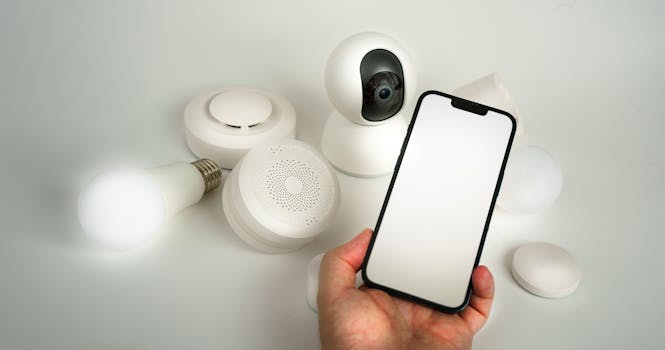+17162654855
+17162654855
NRP Publication News serves as an authoritative platform for delivering the latest industry updates, research insights, and significant developments across various sectors. Our news articles provide a comprehensive view of market trends, key findings, and groundbreaking initiatives, ensuring businesses and professionals stay ahead in a competitive landscape.
The News section on NRP Publication News highlights major industry events such as product launches, market expansions, mergers and acquisitions, financial reports, and strategic collaborations. This dedicated space allows businesses to gain valuable insights into evolving market dynamics, empowering them to make informed decisions.
At NRP Publication News, we cover a diverse range of industries, including Healthcare, Automotive, Utilities, Materials, Chemicals, Energy, Telecommunications, Technology, Financials, and Consumer Goods. Our mission is to ensure that professionals across these sectors have access to high-quality, data-driven news that shapes their industry’s future.
By featuring key industry updates and expert insights, NRP Publication News enhances brand visibility, credibility, and engagement for businesses worldwide. Whether it's the latest technological breakthrough or emerging market opportunities, our platform serves as a bridge between industry leaders, stakeholders, and decision-makers.
Stay informed with NRP Publication News – your trusted source for impactful industry news.
Energy

Smart Homes: How IoT is Revolutionizing Home Security and Convenience
The Internet of Things (IoT) is rapidly transforming our homes, evolving them from simple living spaces into intelligent, responsive environments. This technological leap, fueled by interconnected devices and sophisticated data analysis, is enhancing both convenience and security in ways previously unimaginable. This article delves into the ways IoT is making homes smarter and safer, exploring the key technologies, benefits, and challenges involved in this exciting revolution.
The core of a smart home lies in its interconnected network of devices. This network, powered by the IoT, allows for seamless communication and automation between various appliances, sensors, and systems. Imagine waking up to a home already prepped for your day: the coffee machine brewing, the lights gently illuminating, and the thermostat adjusting to your preferred temperature. This is the power of smart home technology.
Smart home devices offer a wide range of functionalities, catering to diverse needs and lifestyles. Some popular examples include:
The convenience and functionality of a smart home rely heavily on the vast amount of data generated by interconnected devices. This data encompasses everything from energy consumption patterns to security alerts and appliance usage statistics. Effective data management is crucial for optimizing smart home performance and drawing valuable insights.
Cloud-based storage solutions are becoming increasingly popular for managing this data. These platforms offer scalable storage capacity, enabling users to store and access data from multiple devices seamlessly. However, concerns about data privacy and security remain paramount. Choosing reputable providers with robust security protocols is essential for safeguarding sensitive information.
The evolution of edge computing also plays a significant role. By processing data closer to the source (the devices themselves), edge computing reduces latency and dependence on cloud connectivity, enhancing the responsiveness and reliability of smart home systems. This is particularly crucial for time-sensitive applications such as security monitoring.
Beyond convenience, IoT is dramatically improving home security. Traditional security systems are being augmented with smart features, offering a far more comprehensive and proactive approach to safety.
Smart home technology isn't just about preventing burglaries; it also contributes to overall home safety. Features like smart smoke detectors and carbon monoxide detectors offer early warning systems, potentially saving lives. Smart water leak detectors prevent costly water damage by automatically shutting off water supply in case of a leak. These proactive safety features provide a significant level of protection beyond traditional home security measures.
The future of smart home technology promises even greater integration and innovation. Expect to see more seamless interoperability between different devices and platforms, reducing the complexity of managing multiple systems. Artificial intelligence (AI) will play an increasingly crucial role, enabling more personalized and proactive experiences. AI-powered systems will learn user preferences, anticipate needs, and automatically optimize home settings for maximum comfort and efficiency.
The integration of smart home ecosystems with other technologies, such as voice assistants and wearables, will further enhance convenience and accessibility. Imagine controlling your entire home environment through voice commands or personalized routines triggered by your wearable devices.
While the advantages of smart homes are significant, it's crucial to address potential challenges. Concerns about data privacy and security are paramount. The sheer volume of data generated by smart home devices makes them potential targets for cyberattacks. Choosing reputable manufacturers and providers with robust security protocols is essential to mitigate these risks. Furthermore, the initial investment in smart home technology can be substantial, potentially creating a barrier to entry for some consumers. However, long-term cost savings through energy efficiency and preventative measures can often outweigh the initial investment.
The increasing complexity of smart home systems can also pose a challenge. Managing numerous devices and apps can be overwhelming for some users. Simplified interfaces and user-friendly platforms are necessary to ensure widespread adoption and successful implementation.
In conclusion, the Internet of Things is fundamentally reshaping our homes, making them smarter, safer, and more efficient. While challenges remain, the benefits of enhanced convenience, improved security, and optimized energy consumption are driving the rapid growth of the smart home market. As technology continues to evolve, we can expect even more innovative solutions to emerge, transforming our living spaces into truly intelligent environments.